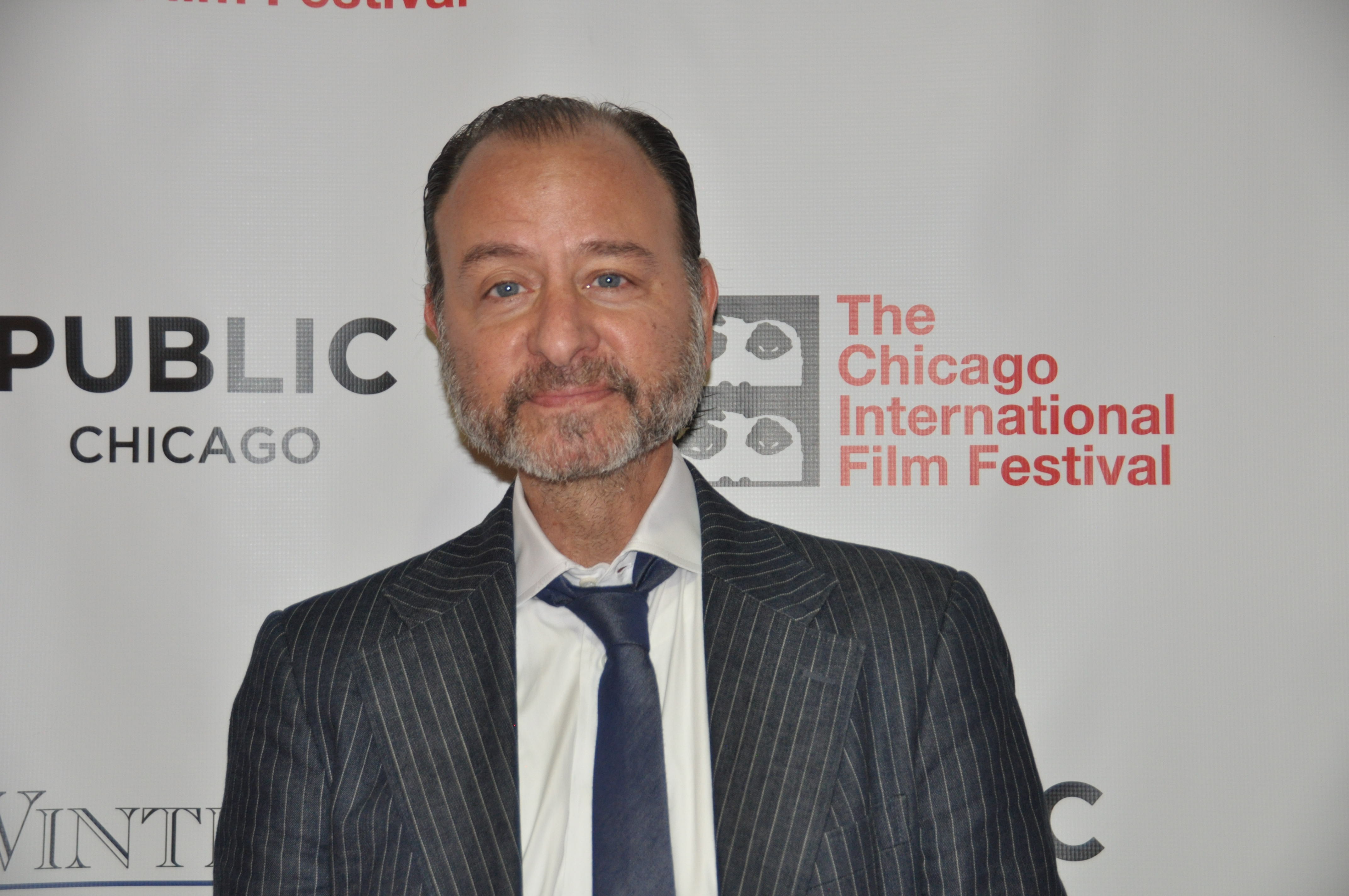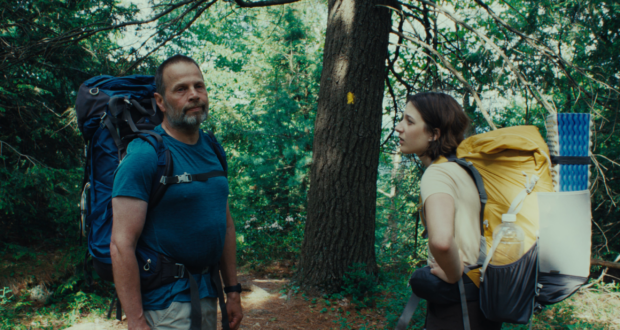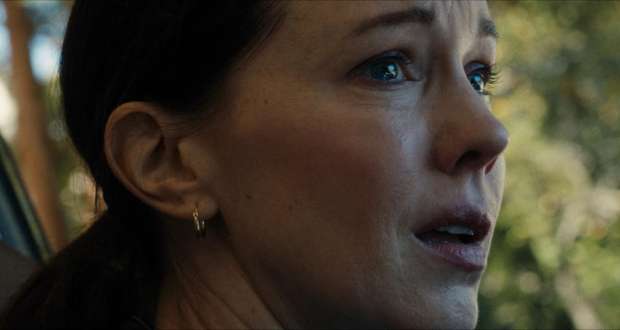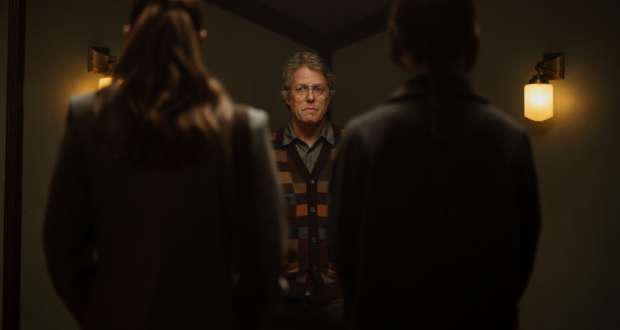Director Fisher Stevens of the Documentary “Bright Lights: Starring Debbie Reynolds and Carrie Fisher” at the Chicago Film Festival. [*For those too young to really remember Debbie Reynolds (or Carrie Fisher) the Oprah Winfrey program (below) is a font of information, but Fisher Stevens has made the subject matter far more humorous and entertaining in a wonderful documentary airing on HBO in March.]
https://www.youtube.com/watch?v=kzjgp2XebwE
“Bright Lights: Starring Debbie Reynolds and Carrie Fisher”
Genre: Poignant, bittersweet but funny documentary
Director: Fisher Stevens (“The Cove,” “Stand-Up Guys”)
94 minutes
Stars: Debbie Reynolds, Carrie Fisher, Todd Fisher, Todd’s wife Catherine HicklandHBO in March
Reviewer: Connie Wilson (www.WeeklyWilson.com)
“Bright Lights,” a documentary from Fisher Stevens (“The Cove”) and his wife Alexis Bloom played the Chicago Film Festival and was absolutely one of my favorite films of the entire festival. It is the story of screen icons Debbie Reynolds (“Singin’ in the Rain”) and Carrie Fisher (“Star Wars”) showing 2 generations of show business life in a fantastically entertaining warts-and-all portrait as they battle aging, celebrity and each other.
THE GOOD
As they say, “It’s all good.”
Fisher Stevens told us on the Red Carpet, “Carrie called me to film her and her mother. She thought it might be kind of interesting to sort of document her/their life. I was blown away by what a consummate pro Debbie Reynolds is—always preparing, always perfecting.” This is ably demonstrated in scenes where the now 84-year-old Reynolds decides to perform despite not being in perfect health.
As Debbie prepares for an engagement at the Mohegan Sun Resort in Connecticut, daughter Carrie (Fisher) worries and says, “Inside my mom is the same person and she does not want to retire. Performing gives her a life in a way that family can’t.” Fisher added, ‘Everything in me demands that my mother be as she always was. It’s terrible for all of us, because she’s fallen from a greater height.”
Therefore, wearing a 50-lb. beaded dress, the frail Mary Frances (aka, Debbie) Reynolds is helped up stairs to appear before an adoring throng of older fans who remember her from such hits as “Singin’ in the Rain,” “Tammy and the Bachelor” and “The Unsinkable Molly Brown” (1964) for which Debbie received an Academy Award nomination for Best Actress.
The film also covers the infamous scandal of 1959-1960 when Debbie’s husband, singer Eddie Fisher, ran off with Debbie’s former friend Elizabeth Taylor, leaving Debbie with 2 small children, Carrie and Todd. Both Carrie and Todd appear onscreen and, during 150 to 200 hours of shooting in Fisher Stevens’ cinema verite fashion, a new audience may begin to have an appreciation of this major star of yesteryear and one of the last of Hollywood’s true star system, which she entered in 1948. As Director Fisher Stevens himself said, “I didn’t know much about her when we started.” (*Hence the Oprah interview above.)
Asked about whether they were “celebrities” to him, Fisher said, “Only when they kept me waiting to shoot.” He described being more respectful of Debbie’s frail health and said, “We really did love them. As you can see, they were nuts.” There is also an amusing scene where Stevens accidentally set off a burglar alarm during the interview of Debbie.
The “nuts” reference was made with genuine affection and is in deference to the compound where both Debbie and Carrie live in separate houses (A compound built by Robert Armstrong of “King Kong” fame), as well as Carrie’s well-documented battles with bi-polar disease and drugs. Carrie Fisher’s sense of humor is famous. I
n a touching scene from the HBO archives (Carrie’s “Wishful Drinking”), Carrie is shown with her terminally ill father (Eddie Fisher) telling him that she always tried to be funny so he would want to be around her. (Fisher died of complications 10 days after hip surgery in Berkeley on Sept. 22, 2010.)
Said Fisher of the scene, “Carrie did not want that scene in the film. She ran out of the theater crying when it came on.” The vignette is genuinely touching, as Fisher—whom Carrie says became addicted to amphetamines during his singing career, along with many other famous folk of the day—is obviously close to death, but lucid. [*An examination of the 5-times married Eddie Fisher’s life, shows that he rarely was in a marriage that lasted longer than 4 years. He fathered 2 children with Debbie (4 years married) and 2 children with Connie Stevens (2 years married). He was not married at the time of his death in 2010 and had not been married since the death of Wife #5 nine years earlier.]
Carrie Fisher, Princess Leia in the original “Star Wars,” was diagnosed as manic depressive and has had ups-and-downs in her relationship with her famous mother, as well, penning the Meryl Streep/Shirley MacLaine film “Postcards from the Edge” based loosely on their mother/daughter battles. It is clear that now, at age 60, Fisher wanted to document her mother’s remarkable achievements and life and, perhaps, her own.
Fisher, herself, has had an interesting personal life. After dating singer/songwriter Paul Simon for 6 years, they married but only remained married for 11 months (August of 1983 to July of 1984), after which they dated for a while. Her subsequent marriage to talent agent Bryan Lourd produced one daughter, Billie Catherine (age 24), who does not appear in the documentary.
Carrie Fisher’s struggles with drugs and bi-polarity are well documented. (“I went too fast. I went too much.”) With a mother whose own father told her that show business was “a crazy way to make a living” and reminded Debbie Reynolds that she originally wanted to be a gym teacher, we hear this life advice from Debbie: “The only way you make it through life is to fight. If you feel sorry for yourself, you will drown.” Debbie describes her own life as “1/3 talent and 2/3 luck.” Learn more about Debbie’s relationship with her own mother from the Oprah interview; this is not touched on in the much happier “Bright Lights.”
THE BAD
Despite years of grooming Carrie for show business, having her sing in her act since the age of 13, Debbie ultimately realized: “She doesn’t want to be Eddie and she doesn’t want to be Debbie. She wants to be Carrie, so she’ll do it her way.” Carrie felt, “She wants me to be an extension of her and her wishes.” Carrie sings “I’ll Never Say No to You” in the documentary at Debbie’s request and describes the song choice (made by her mother) as “perfect.”
It is clear that, while Carrie now loves her mother very much, she rejected most of her mother’s advice when young. However, Carrie Fisher became a noted “script doctor” working on many films to fix dialogue, bringing her razor-sharp wit to bear. (This is even more remarkable when you learn that Carrie never finished high school.)
Carrie, for her part, describes her family relationships, including that with brother Todd, as “a shared history of weirdness.” The documentary reminds us that Carrie’s father Eddie Fisher had more consecutive hits as a singer than the Beatles and Elvis combined, with 65,000 fan clubs clamoring for him at the height of his fame (which ended abruptly in 1960). Carrie obviously has a great deal of affection for her famous mother, saying, “My mom is Christmas. She’s something special.” But she seems equally loving towards her dying father in the scenes from “Wishful Drinking.”
One of the saddest sagas, which I saw documented in a SXSW documentary “The Slippers” by Morgan White, detailed the selling off of movie memorabilia that Reynolds tried, for years, to make into a museum. Son Todd says, “We struggled for years to make this museum. The truth is, we had borrowed money to buy this stuff. We had debt and no museum. We were done.”
Three auctions were held. The second auction brought in $27 million. $6.2 million was paid for Marilyn Monroe’s iconic white subway dress from “The Seven Year Itch.” (When the Oprah tape was made, the dress was only valued at around $2 million.) When I asked Director Fisher Stevens if it was his impression that the auction was held because the family needed the money, he agreed that that was the case. Much of the reason for that can be attributed to Debbie’s 3 failed marriages, each one more damaging, financially, than the last. Stevens also said that when he approached Debbie about making this documentary about her life, she asked, “What are my lines? Do you have a script?”
Fisher commented that there is “a lot of down time in documentaries” and that “these things take a long time and they don’t make a lot” so he keeps several projects going at once. One upcoming project that he mentioned prominently is a Leonardo DeCaprio film about climate change entitled “Before the Flood” being shot for National Geographic.
The Debbie Reynolds/Carrie Fisher documentary, which is a poignant bittersweet look at an iconic movie star, her family, her life, and her equally famous daughter is scheduled to be released by HBO in March. It must have been a massive undertaking, as Stevens described sifting through 10,000 hours of archival footage to make the film. He gave much credit to his wife and partner, Alexis Bloom (who was at home caring for their sick three-year-old this night.
Debbie, he said, “really, really liked the film” but Carrie was not as enthused about an earlier version when it was screened for her and some small changes were made.
The ending is built around Debbie’s appearance in 2014 to receive a SAG (Screen Actors’ Guild) award, following which Debbie said, “I can’t be funny about tonight, because it’s too special. You don’t get a chance to have a moment like this very often.” Reynolds was also awarded the Jean Hersholt Humanitarian Award at the 2015 Academy Awards.
One parting thought from the woman who called Debbie Reynolds Mom: “What would be so cool would be to get to the end of my personality and just lay in the sun.” (For more background, view the Oprah in-depth interview, complete with some of the memorabilia that Reynolds was forced to auction off, after trying unsuccessfully for years, to found a Hollywood Memorabilia Museum in Las Vegas.
A must-see documentary for anyone who remember either of these two unique and remarkable women.
-
Acting - 10/10
10/10
-
Cinematography - 9/10
9/10
-
Plot/Screenplay - 10/10
10/10
-
Setting/Theme - 10/10
10/10
-
Buyability - 10/10
10/10
-
Recyclability - 10/10
10/10

















